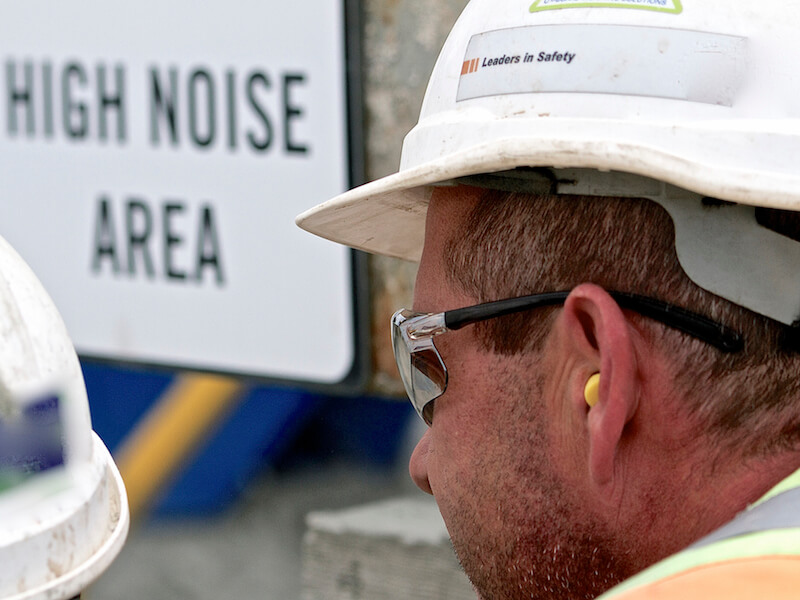
Your hearing can be harmed by a noisy workplace and it can also impact your focus. Your hearing health can be negatively affected by even moderate levels of noise if you’re exposed to it for numerous hours every day. That’s why it’s pretty smart to start asking questions like, “what level of hearing protection do I need”?
Most of us probably didn’t even realize there were numerous levels of hearing protection. But it seems logical when you stop to think about it. A truck driver won’t need the same amount of protection that a jet engine mechanic will.
Hearing Damage Levels
The fact that 85dB of sound can begin to harm your ears is a basic rule of thumb. Putting sound into context with regards to its decibel level and how harmful it is, isn’t something most of us are used to doing.
When you’re sitting in your car in city traffic, that’s approximately 85 decibels. That’s not a big deal, right? Actually, it’s rather significant. It becomes a big deal after several hours. Because it isn’t just the loudness of the noise that you need to be aware of, it’s the duration of exposure.
Common Danger Zones
If you’re exposed to 85 dB of noise for eight hours every day or more, you should probably consider using ear protection. But there are some other important thresholds to take note of. If you’re exposed to:
- 90 dB (e.g., lawnmower): Anything above four hours will be damaging to your ears.
- 100 dB (e.g., power tools): Your hearing will be damaged when exposed to this noise level for 1 hour a day.
- 110 dB (e.g., leaf blower): Anything above fifteen minutes will be damaging to your hearing.
- 120 dB (e.g., rock concert): If your exposed to this level of noise for any length of time, your hearing can be damaged.
- 140 dB (e.g., jet engine): This level of noise will lead to immediate damage and most likely pain to your ears.
You’ll want the ear protection you wear to be sufficient to bring the volume below that 85 dB level, particularly if you’re exposed to those noises for any duration.
Make Sure Your Hearing Protection Fits Comfortably
The effectiveness of hearing protection is measured by something called a Noise Reduction Rate, or NRR. Outside sound will become progressively quieter the higher the NRR.
Most workplaces will have recommendations as to what level of protection will keep your ears safe because it’s essential to have the correct protection.
Comfort is also an important component to take into consideration. As it happens, comfort is incredibly important to keeping your hearing healthy. Why? Because if your hearing protection is uncomfortable, you won’t wear it.
What Are my Hearing Protection Options?
There Are Basically Three Options:
- Earmuffs.
- In-ear earplugs
- Earplugs that stay just outside of the ear canal.
There are advantages and disadvantages to each type of protection, but personal preference is frequently the deciding factor. Earmuffs are the best option for individuals whose ears are irritated by earplugs. Other people may appreciate the leave-them-in-and-forget-them strategy of earplugs (obviously, you won’t want to forget them for too long… you should take them out at the end of your workday. And clean them).
Consistently Use Protection That Works Best For You
Any laps in your hearing protection can lead to damage, so comfort is a significant factor. If you take your earmuffs off for ten minutes because they’re heavy and scratchy, your hearing can suffer over the long run. So the most crucial decision you can make is to pick hearing protection that you’re comfortable leaving in place during your workday.
You’re ears will stay healthier and happier if you choose the right degree of hearing protection for your circumstance.
Call Today to Set Up an Appointment
